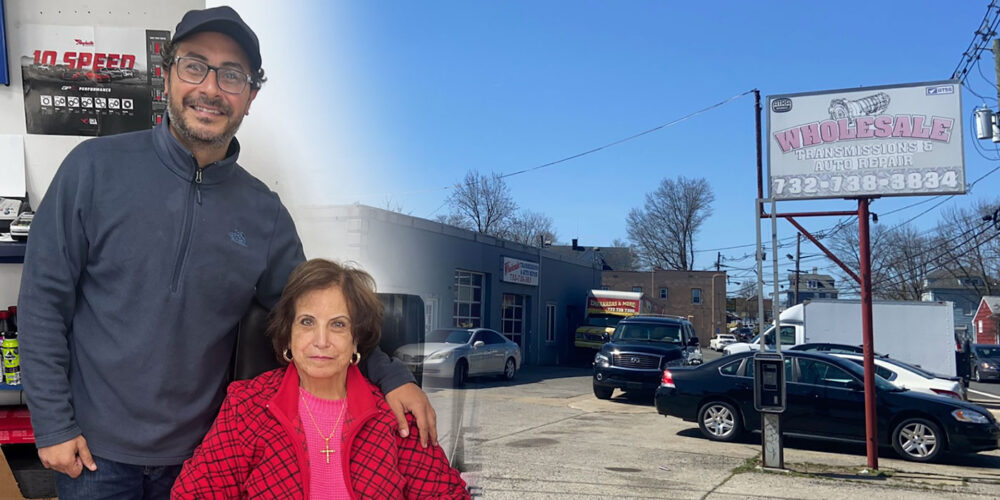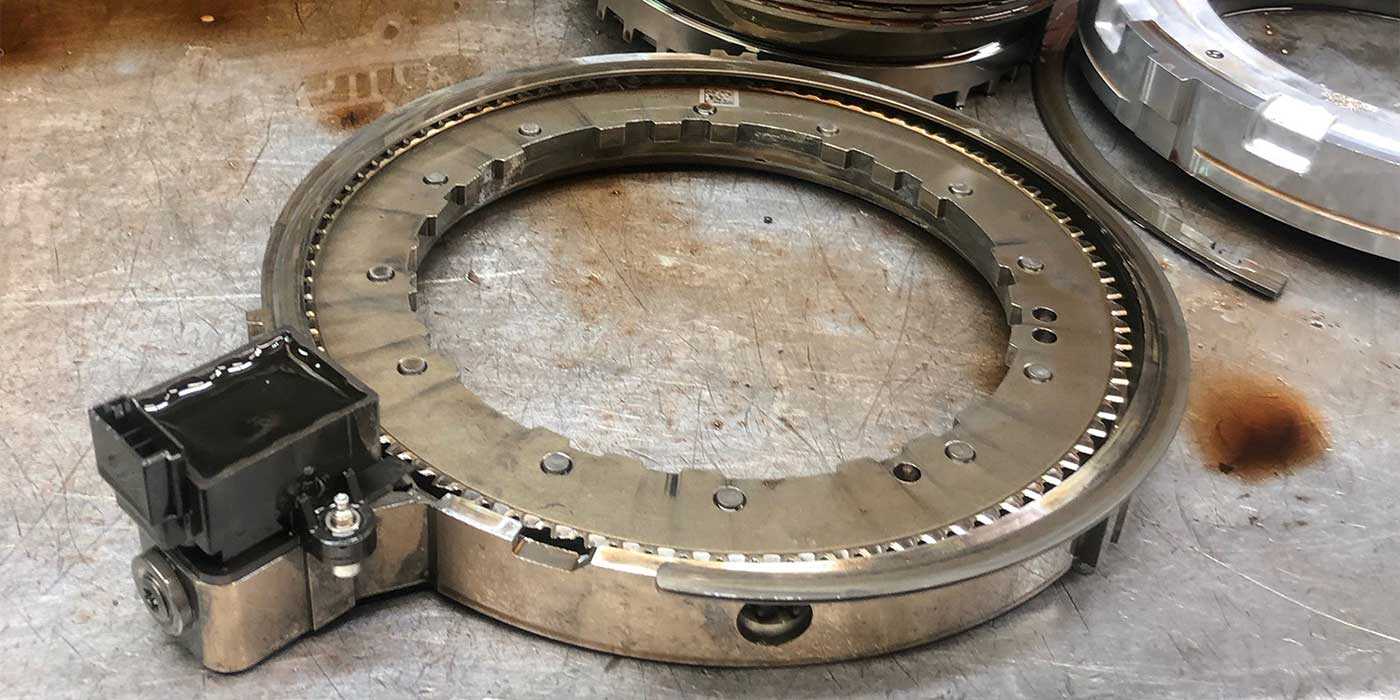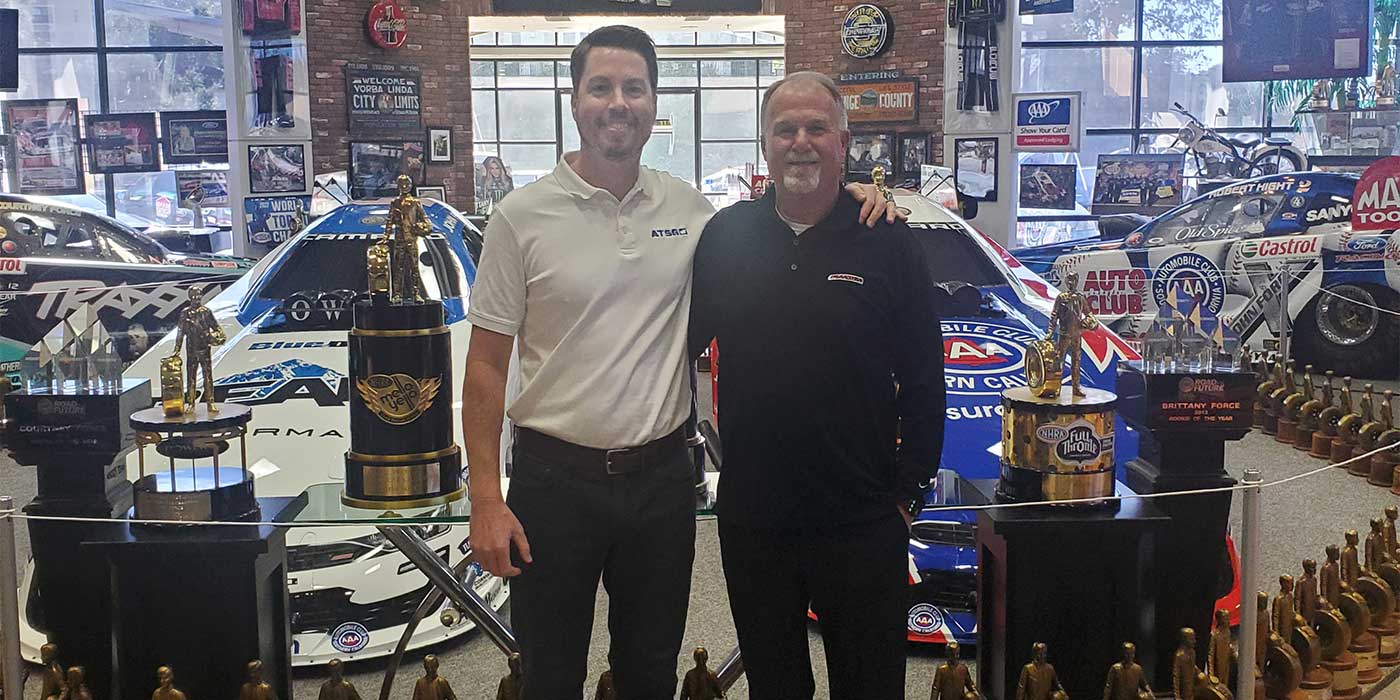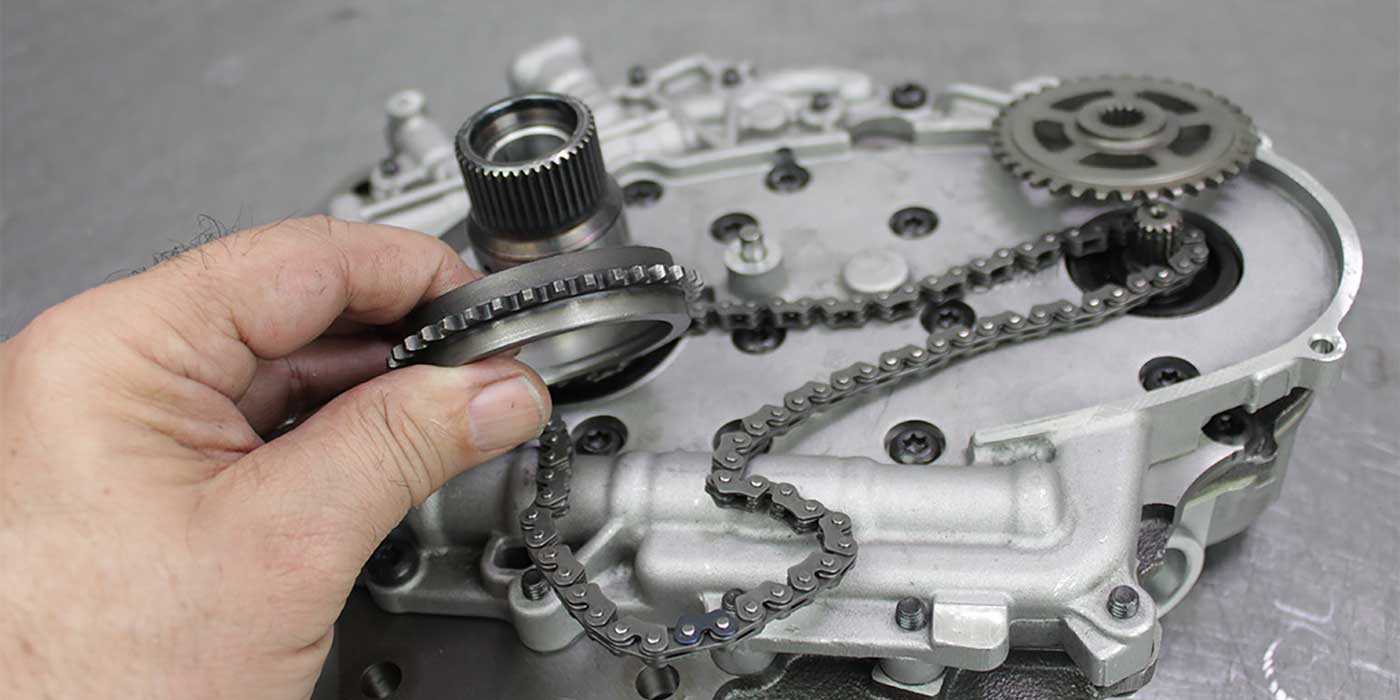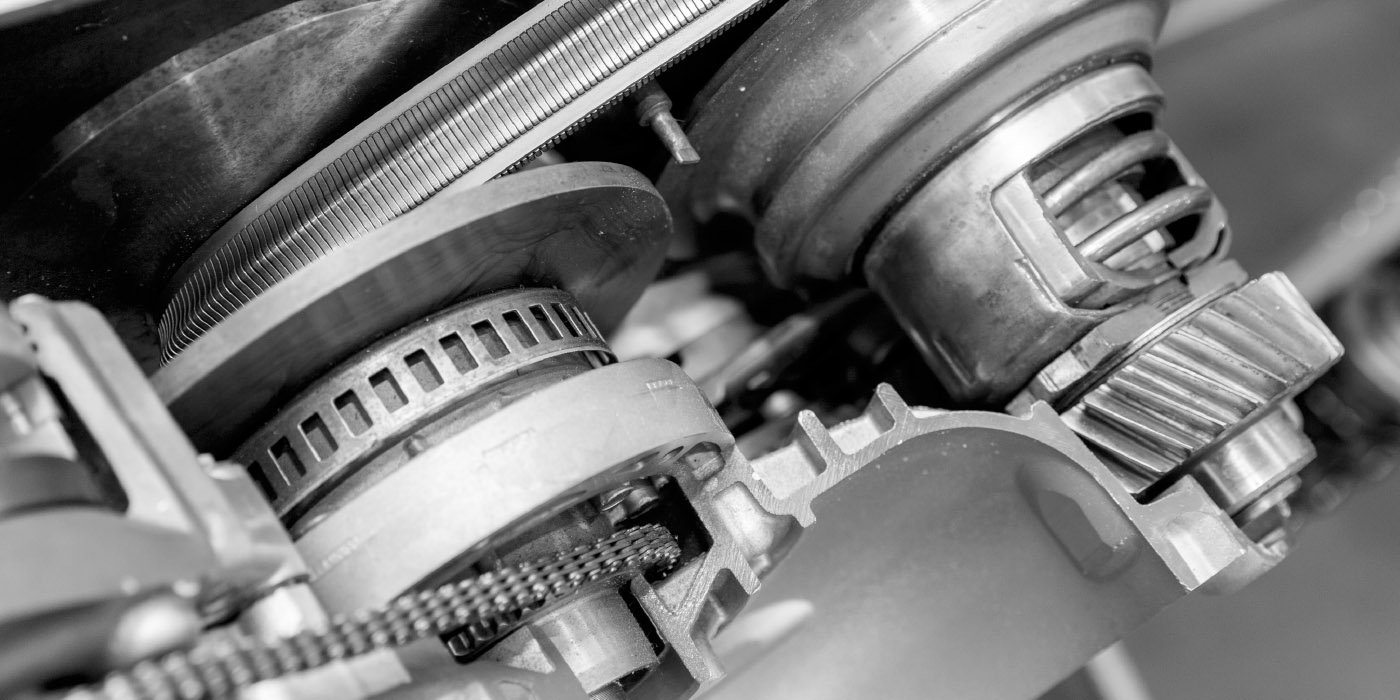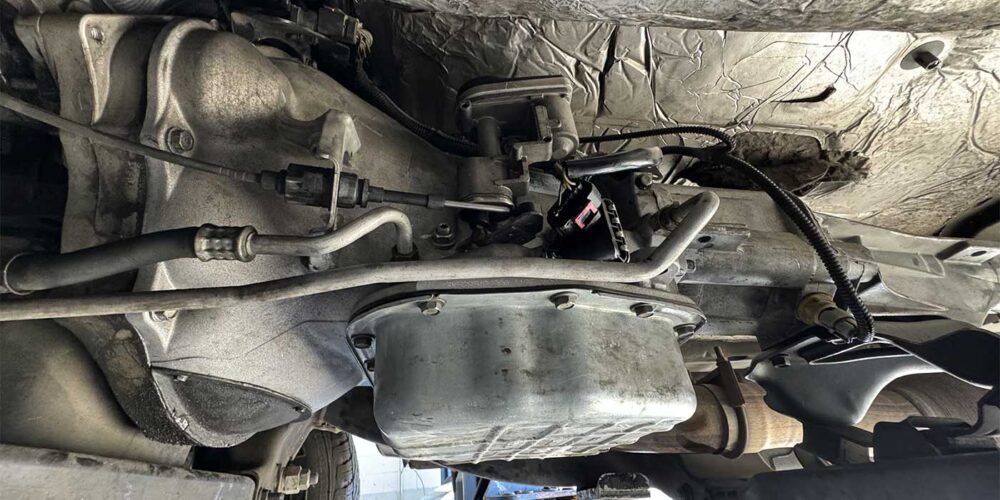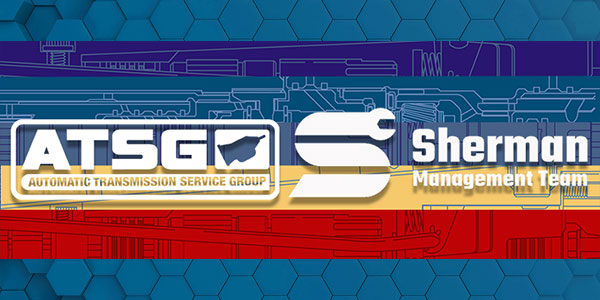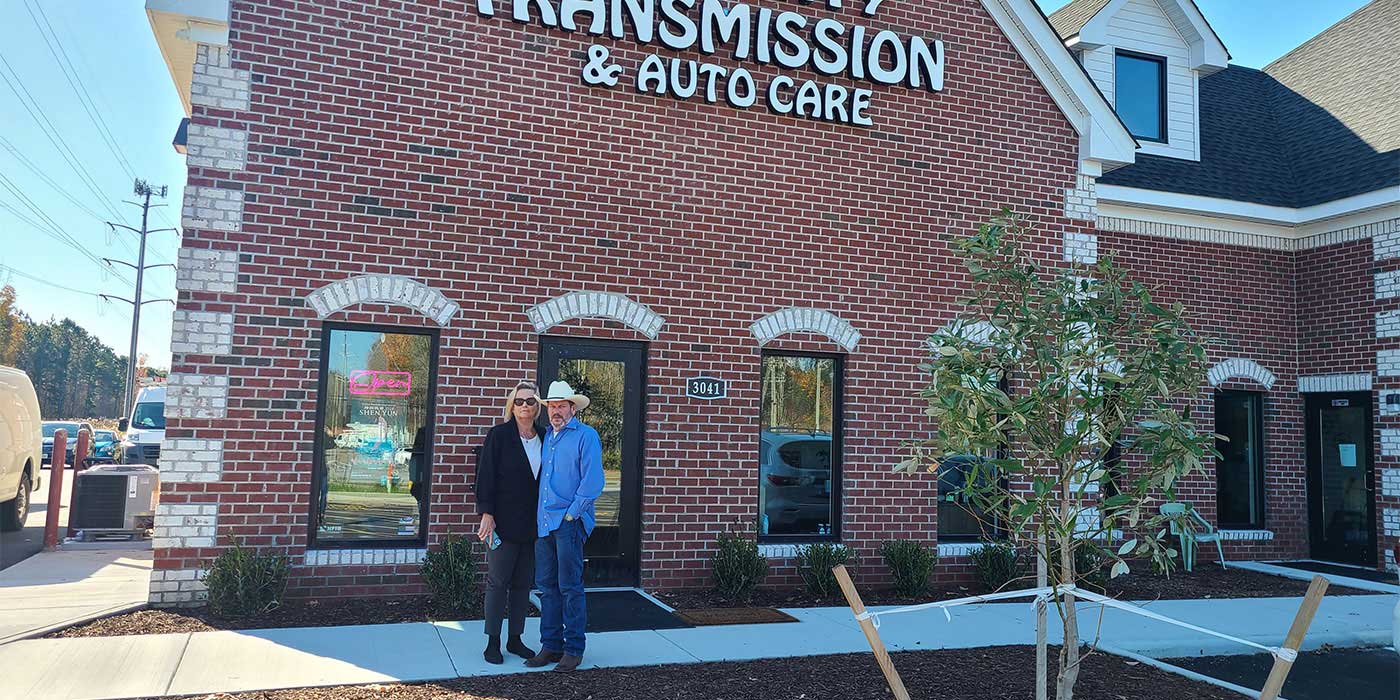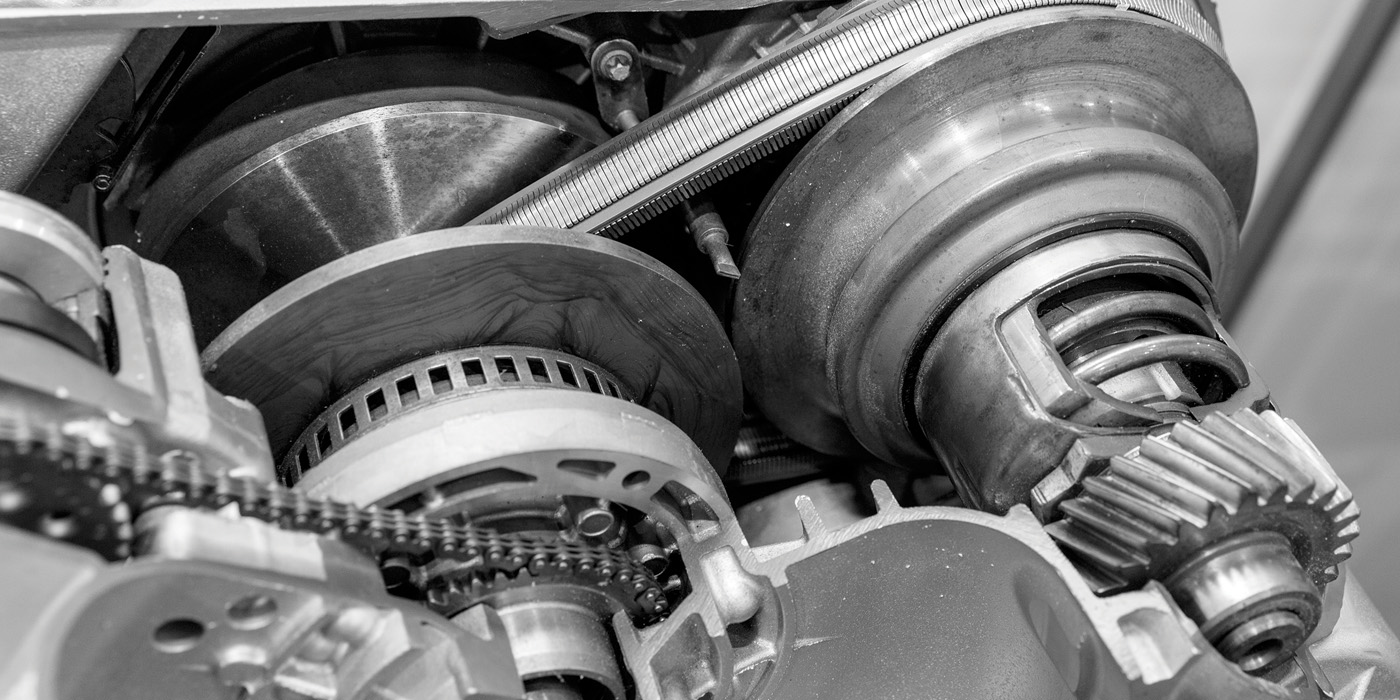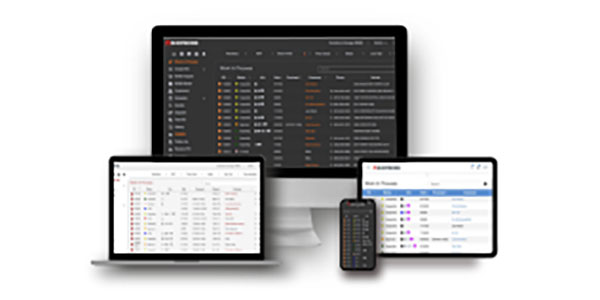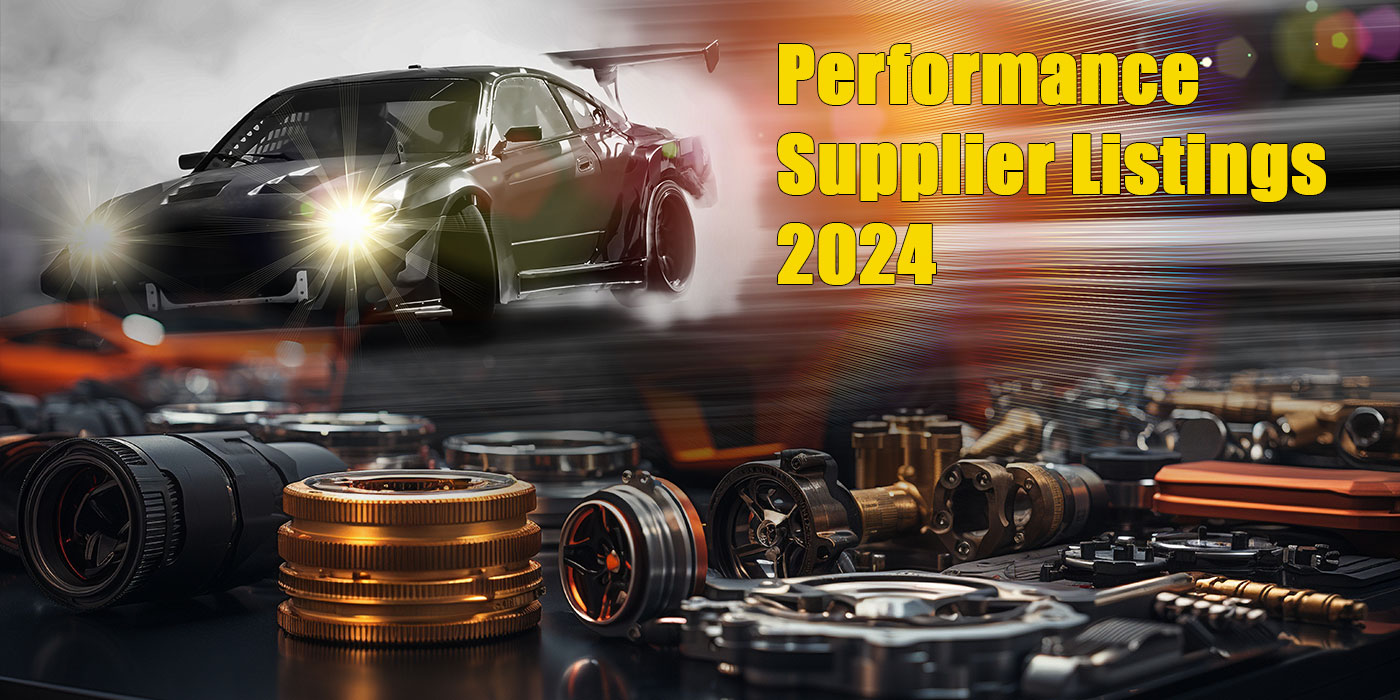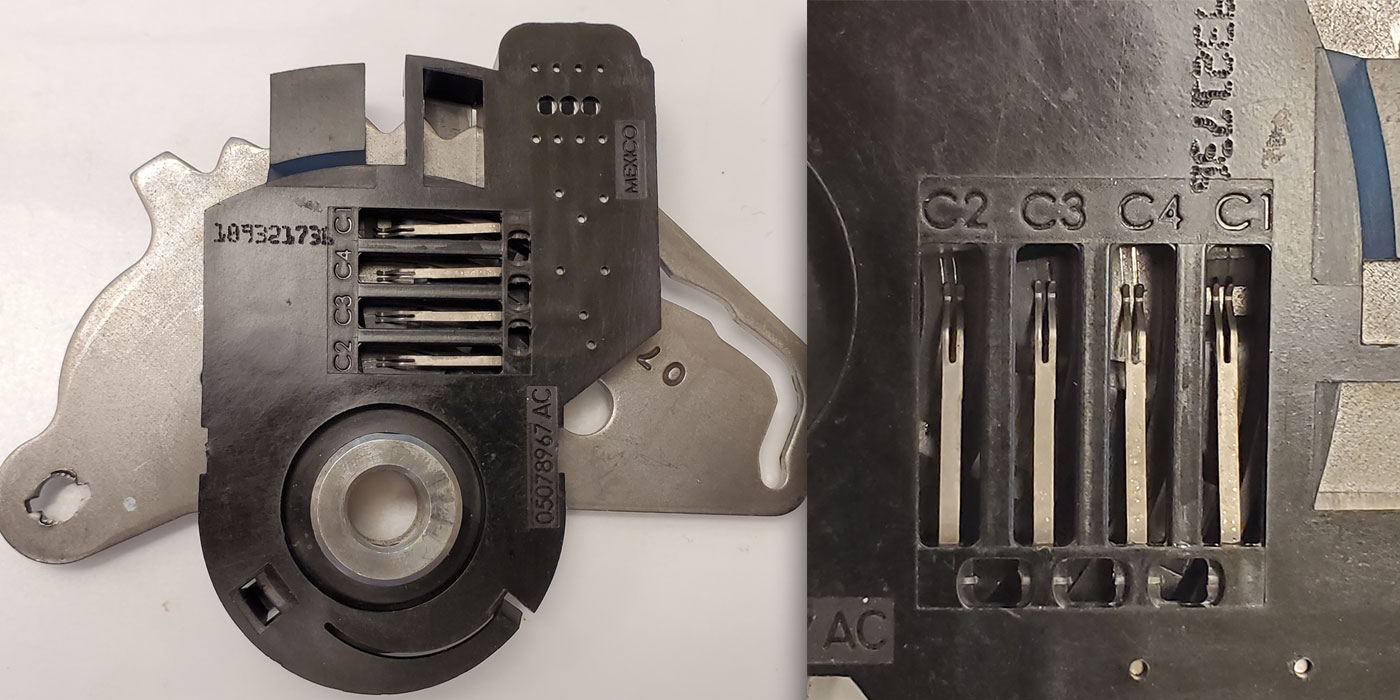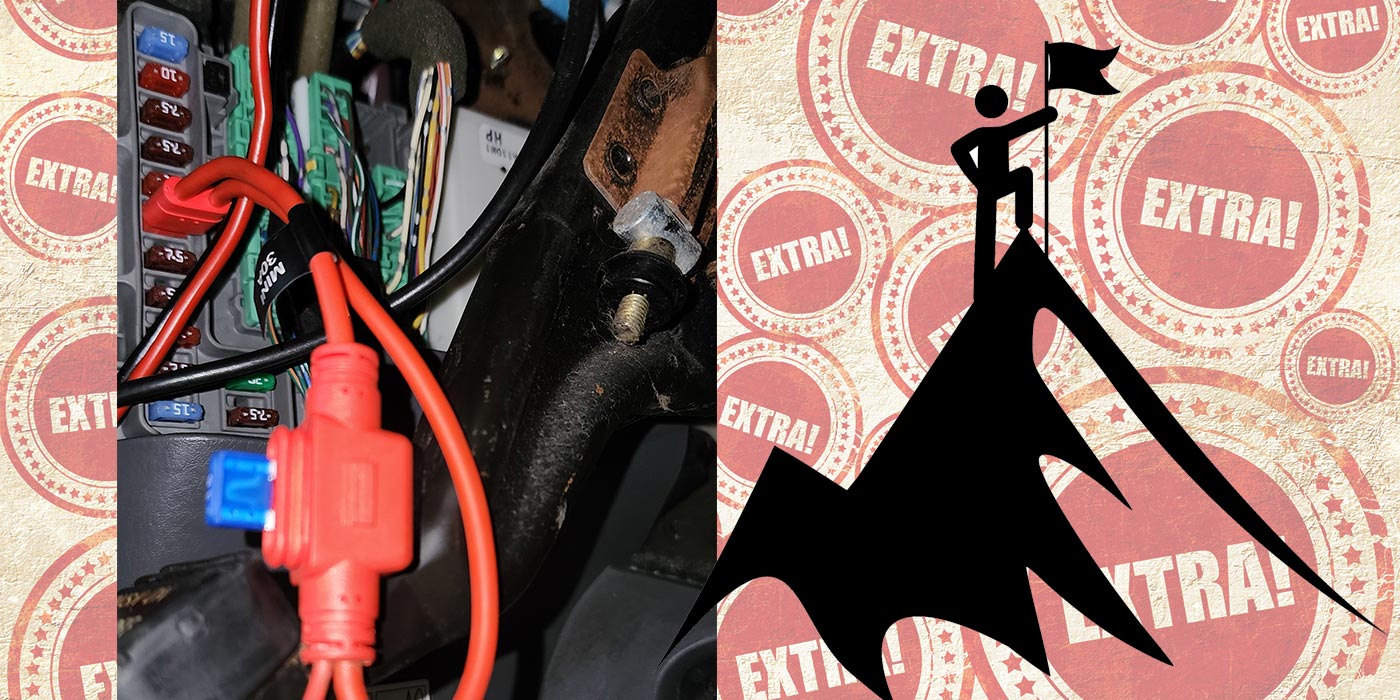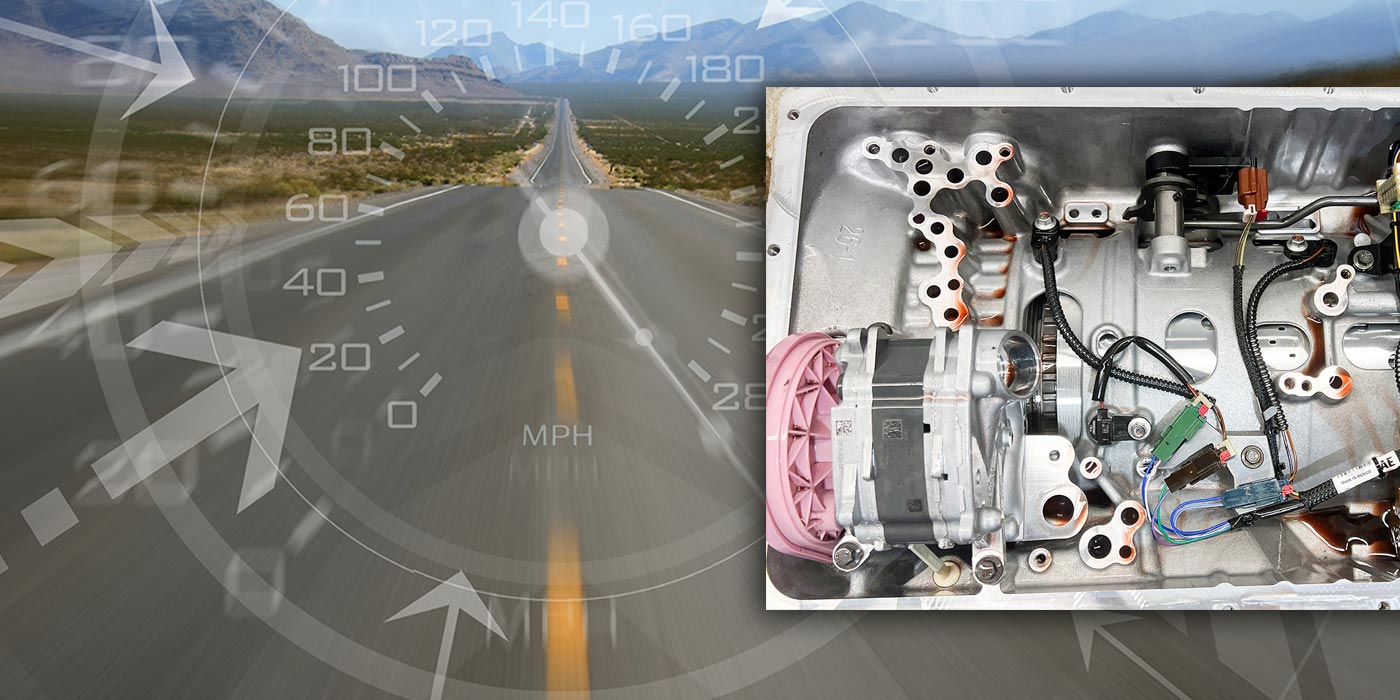“We’ve been family-owned since 1985,” Mike Nader says of his shop, New Jersey’s Wholesale Transmissions.
Mike’s father started off as a multi-shop Cottman Transmission franchisee in the ‘80s. But when he passed away, it left his widow Georgette to, as Mike says, “pick up the pieces.”
“She didn’t know anything about the transmission business,” Mike says. “She was just a regular old housewife. But the crew stayed on and taught my mom the business because they cared about my father and his legacy. They were absolutely wonderful to my mom and me.”
Georgette remained as the owner throughout the decades, and in 2000, Mike officially joined the business. By 2007, he and his mom decided to strike out on their own outside of the franchise system. That year, they purchased a location in Fords, New Jersey, and opened up Wholesale Transmissions.
2007, as you’re no doubt aware, was an exceptionally unfortunate year to open a new business, with the major recession that followed.
“It was tough at first,” Mike says, “but my mom had a very good following. Women especially liked dealing with her. So that got us moving, and then I hit the pavement as a salesman. Outside sales, fleet accounts, plumbers, electricians, you name it.
“Our core business was pretty much wholesale rebuilding for these construction-plumber type work companies. And then we opened up the retail in around 2010.
“We threw a ton of money into Google AdWords when it really wasn’t a [widely used] thing yet. There are 12 transmission shops within a 15-16 mile radius of me, so how are you going to maintain that competitiveness if you don’t get your online presence figured out? You have to.
“I think we were ahead of the curve there because business blew up. It went from $100,000 to $200,000 to half a million in 2010-’11, to today, almost $2.4 million. So with a combination of outside sales and Google AdWords we really set ourselves apart from the competition.
“Mom is still there every day. She’s still one of those familiar faces that people keep on looking forward to when they come to the shop.”
Wholesale vs. retail
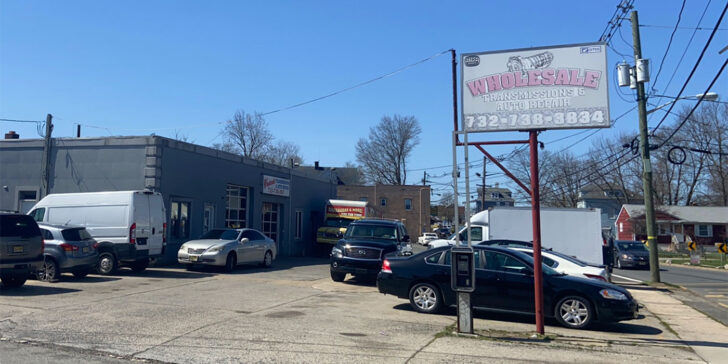
Mike estimates that the business today is about 65% wholesale and 35% retail.
He says that what sets his shop apart from competitors is having transmissions in stock and ready to go—both over-the-counter transmissions, and the ability to custom build.
“For example,” he shares, “companies like United Airlines require that we pick up the transmissions from their facility, build them up to their spec, and bring it back. So with that, we were able to pick up huge fleet accounts: Trucking companies, and lots of fleet vehicles that service the New Jersey Turnpike and the New Jersey Parkway.”
Mike credits wholesale business as being the lifeblood of his shop throughout the years.
“If you want wholesale business, these guys are very busy. They’re underneath the lift, they’re answering phones, they’re doing their own billing. They’ve had a million transmission guys go through their shop over the years trying to get business, and they’ve got a bad taste in their mouth. So you’ve got to have a little bit of a thick skin. You’re going to be rejected. People are going to say ‘no, get out.’ But for every 20 people that you visit, maybe one guy will begin giving you work.
“Sometimes you don’t get a paycheck,” he continues. “But slowly but surely your work will begin trickling in the door. And in that really difficult time [in 2007-2008], it was definitely the wholesale accounts that were keeping us in business and kept us afloat. Same with COVID. It was these wholesale guys that had been dealing with us for a decade plus that kept our doors open.
“Because when the economy is bad, retail is the first aspect that’s going to take a hit,” he continues. “And having those two different business models working in conjunction, the retail and the wholesale, I think has always kept our doors open.”
Read more of TD’s Shop Profiles here.
Mike went on to outline the differences between selling wholesale versus selling retail.
“The biggest difficulty with wholesale is that your wholesaler is the middle man. They’re referring a job to you. They have to trust you 100%, but they need it done in a timely manner. They don’t want any problems. And so it can be a little bit more stressful with the wholesale work.
“So I would say that if you’re going to grow any wholesale business, not all wholesalers are business that you want. You need a wholesaler that says, ‘Listen, I’m sending your car to a professional that I’ve been using for years. They sometimes take a little bit longer, but I know that we get what we pay for and they stand behind their work.’ Those are the type of wholesalers you want to grow your business with.
“This is the biggest pitfall with wholesalers who say, ‘I have a car for you. I need it picked up. I need it back in two days, and I need it done as cheaply as possible.’ Those wholesalers, you’ll never grow your business with them because they’re the first to explode if you call them up and say, ‘Look, I’m sorry. We’re working on the car, but it needs mounds or axles, etc.’ That wholesaler is liable to tell you to stop the job and not put those necessary components in because they haven’t priced that into their job with their customer. Even though you are doing the right thing, they’re just trying to make a quick dollar on your work, but they’re actually not looking out for the customer. So that’s the most difficult thing with the wholesale.
“Now, retail is a little bit more forgiving. The retail customer is actually easier to deal with in one respect that as long as there’s open dialogue with them and they know what’s going on with their car, whether it’s not going to be done on time or whether they need an additional component or if you run into a problem, they’re always open and willing and able to accept whatever type of information you give them, be it good or bad.
“Now that all sounds great, but also the biggest problem with retail is getting them in the door. They tend to be the price shoppers. And so navigating the price shopper from the person that actually is going to believe in going to Wholesale Transmissions because I know they’re going to stand behind my work and I’m going to get what I’m paying for, that’s the tricky part.”
The importance of a good crew
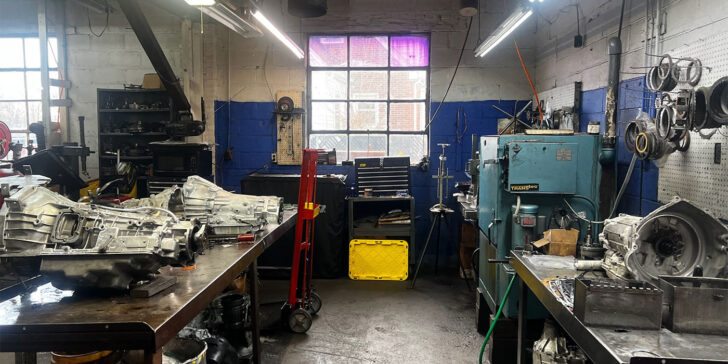
Wholesale Transmission currently employs two rebuilders, four technicians and a service manager, and just signed off on another location which will be exclusively used for rebuilding.
“I have a great network of rebuilders who work for me,” Mike says. “These are guys that work in other shops, guys that are freelance. I think that’s one of the things that’s kept us successful too, is that we’ve had people in the business that they may have come and gone, but they still keep in touch with us. And those rebuilders, they’re the lifeblood of the transmission business. They’ve been at different shops, they’ve seen the ups and downs, the ebbs and the flow of the business. A lot of them were never treated well wherever they worked.
“One of the reasons of our success is we’ve always had good rebuilders on staff who are full-time or part-time to help us take on the excess load, and also be with us in those difficult times to help fix more difficult transmissions. For example, I don’t have a full-time builder doing the dual clutches or the German units, but I do have a freelance guy who knows how to do it. And so through that, we’re able to pretty much tackle any transmission that’s coming on the market because we’ve invested in the talent and the relationship with those rebuilders that have that knowledge, so that they can help us when we need it.”
He credits his mother Georgette’s leadership in making Wholesale Transmissions a place where employees want to work.
“One thing that she’s taught me is that you have to reward loyalty with loyalty,” Mike says. “The crew’s been with us for a long time. Of course there are rules and regulations, but she doesn’t have the rigidity that you see with a lot of top-down relationships between the boss and the crew. That’s what creates a lot of turnover. And I think what Georgette also offers the crew is that security that there’s a boss there who cares about you, who’s here every day with you, that your pay is right, your time off is there.
“There’s a personal relationship working with her and I think a lot of the guys appreciate that, especially in this business. Our crew is tired of the ‘my way or the highway’ type place. And that’s why we’re successful and that’s why our work is good, because these guys are coming to work every day here, and they’re not looking for another place to be. We want to make sure that she’s happy. And when she’s happy, the customer’s happy.”
The value of inclusivity
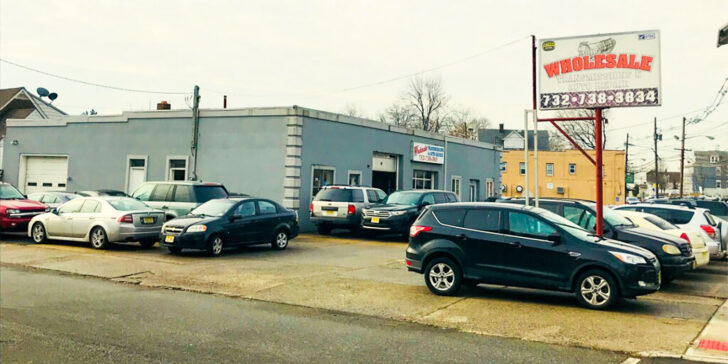
Mike notes that the shop is also minority and woman-owned business certified.
“We’re also LGBTQ-friendly, and we advertise that. Although it’s hard to tell how much of our business is by being socially responsible and socially engaged, it’s just something that we offer to the community. People want to know that where they’re going is supportive and friendly to them. After all, they’re handing you over, a lot of times, all the money they have to get their cars on the road.”
Once again, Mike credits Georgette with much of the shop’s success in this area.
“People come in and they always ask about her. She gives them a sense of continuity over the years that you don’t see in many places. I think that’s what separates Georgette from any other shop that you go to, is that when you come here, you’re expecting to see her and it gives this continuity knowing that decades after decades, she’s the one there to greet you.
“It gives people a sense that this place has been here for a long time. She brings a degree of accountability to a business and I think that’s what customers keep on coming back for: They know, one, that the work is good; and two, if there’s anything that needs to be addressed or any concerns, Georgette is there to make it right.”

